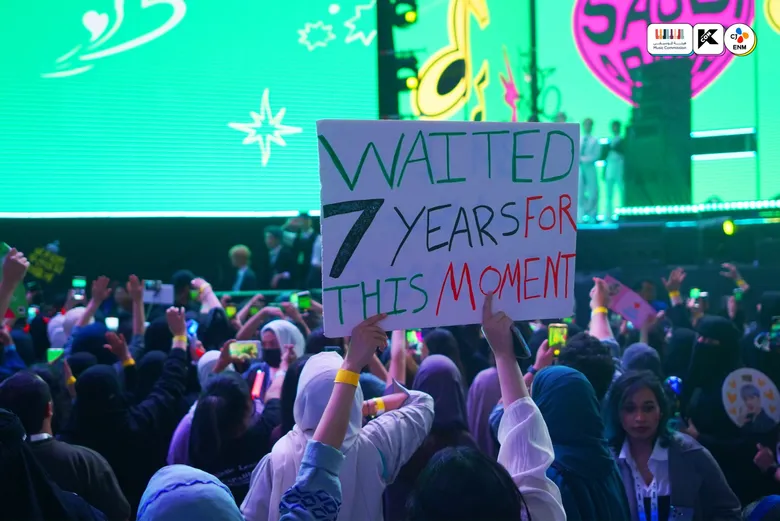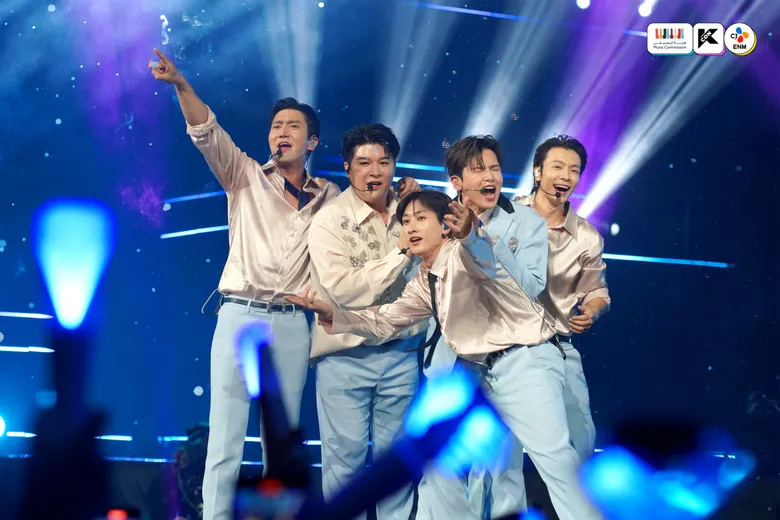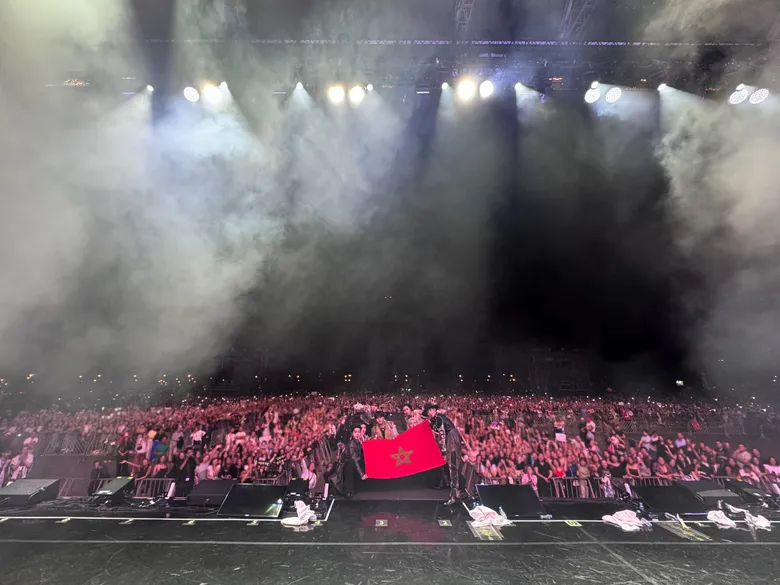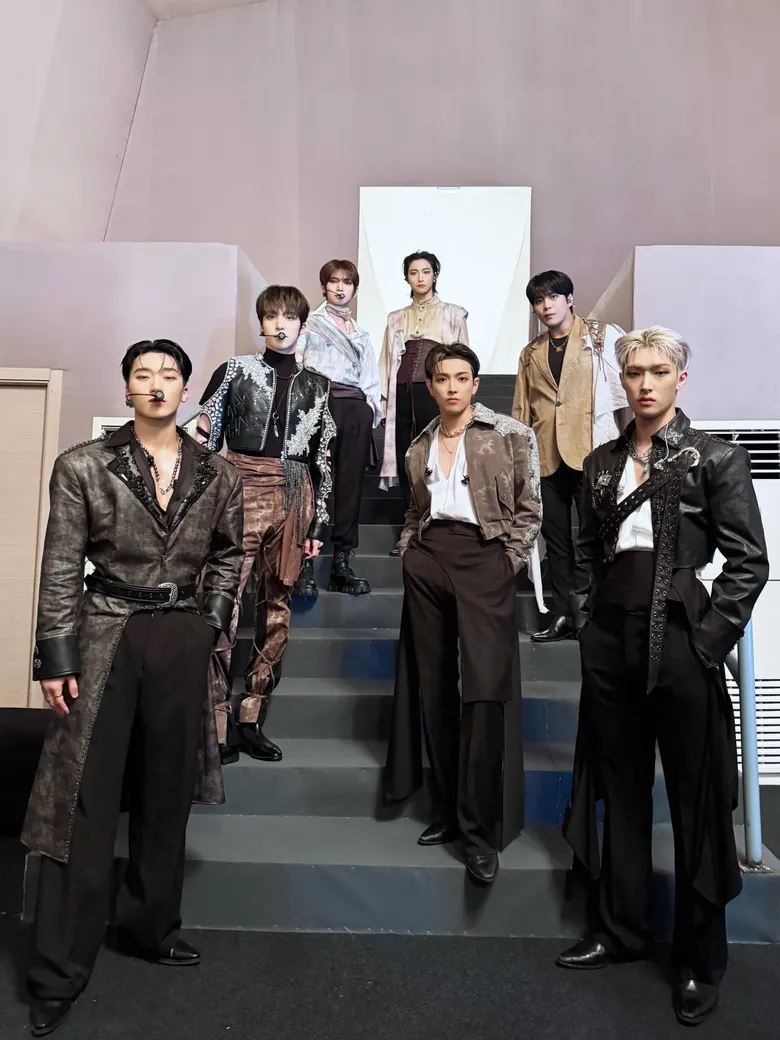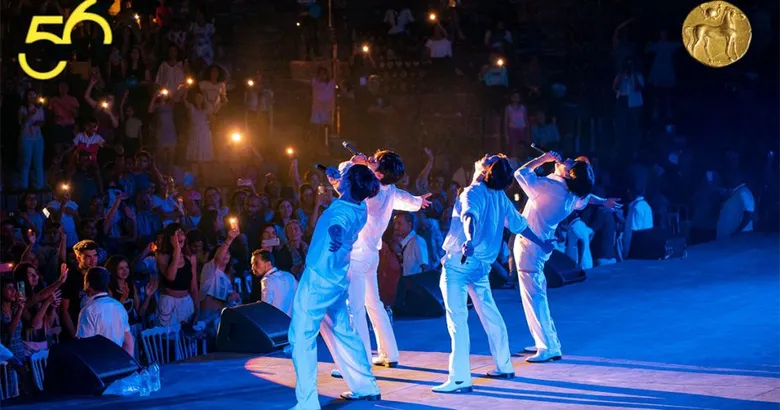
KCON Saudi Arabia Official X Account
In recent years, K-Pop has surged in popularity worldwide, captivating audiences with its catchy music, dynamic performances, and vibrant fan culture. Yet, despite the global appeal, some regions—particularly parts of the Arab world—rarely see their favorite K-Pop stars in person. This has left many fans in these areas wondering: Why don’t more K-Pop groups visit their countries?
Alongside missing out on concerts, fans in these areas often struggle to get official merch and albums without relying on intermediaries, making it harder to fully enjoy the K-Pop experience.
Why Is This The Case?
Most K-Pop group tours and concerts are organized by promoters who handle the locations, venues, and promotion. These promoters work closely with the K-Pop groups’ respective companies, who trust them to manage the logistics. Before confirming tour locations, the companies assess the profitability of the concerts based on factors such as the number of fans in each region, their purchasing power for tickets and merch, and the availability of suitable venues.
Other important considerations include the number of Korean nationals residing in the targeted location, ease of obtaining visas, local entertainment laws, and the political stability of the region. All of these factors influence decisions regarding where K-Pop groups will perform.
Countries In the Arab World Leading The Way
Considering these factors, some countries in the Middle East, such as Saudi Arabia, the UAE, and Qatar, have successfully hosted major K-Pop events. For example, BTS became the first foreign artists to play a solo stadium show in Saudi Arabia. SUPER JUNIOR and The Rose have also performed at events like CJ ENM’s KCON in the region.
However, this success has faced limitations. BTS received criticism for their performance in Saudi Arabia, and there are speculations that KCON was canceled this year due to low ticket sales, possibly because K-Pop agencies did not send their hottest acts (The Korea Herald).
Why Is North Africa Still Undiscovered?
African countries, particularly those in North Africa, remain largely unexplored by K-Pop promoters. This makes it risky for agencies to bring their artists to the region. The few concerts that have taken place in North Africa were part of major festivals. For instance, ATEEZ performed at Morocco’s Mawazine Festival, the second largest festival in the world, with over 150,000 attendees. The group B.I.G also performed at the prestigious Carthage International Festival in Tunisia, held in the ancient theater of Carthage, attracting nearly 5,000 attendees.
How Can Local Fans Attract More K-Pop Events?
Investment in Tourism and Entertainment:
Governments can play a crucial role in attracting more K-Pop events by promoting large-scale festivals or cultural exchanges. For example, the recent “Welcome to Tunisia” campaign by the Tunisian National Tourism Office and Hyundai Motors, featuring popular Korean actor Jung HaeIn, created a significant buzz across social media and highlighted Tunisia’s appeal.
Sponsors, brands, and cultural organizations:
They are essential for supporting K-pop events and increasing the availability of K-Pop merch and other Korean products in the region. Greater involvement from these sectors could encourage more promoters to bring artists to these areas.
Raising Awareness Among Local Promoters:
Promoters in North Africa need to recognize the rising numbers of K-Pop fans and the potential market. By understanding the process of securing sponsorships and negotiating deals, local promoters can attract more K-Pop tours and create a viable market for live performances.
Learn from the HallyuCon example:
Fans and organizers can take inspiration from HallyuCon, an annual event held in various countries that celebrates Korean pop culture through music, dance, and fan meetings. These conventions successfully unite local fan bases and attract attention from Korean agencies. By organizing similar K-Pop-centered conventions and activities, Arab countries can showcase the strong local demand, encouraging promoters and agencies to bring more events and artists to the region. With support from Korean cultural centers and local institutions, these events can grow and attract bigger names from the K-Pop industry.
Where Do You Want To See K-Pop Go Next?
While barriers still exist, the potential for K-Pop in the MENA region is undeniable. Efforts from fans, promoters, and governments alike could help bring more of the K-Pop world closer to those who love it.
So, where are you hoping your favorite K-Pop artist will go next? Let us know and help make the dream of a concert near you a reality!

